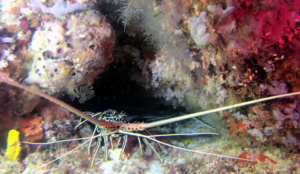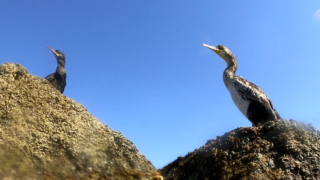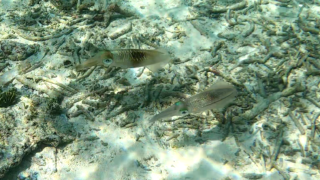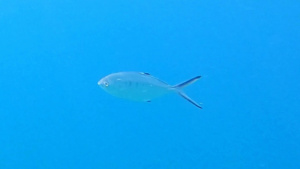While navigating to reach the chosen seabed for the usual scuba diving, we came across a sight never seen before. On 1 August 2020 in the stretch of sea about 9 miles off Castiglioncello, on the route to the Island of Capraia, we suddenly encountered a pod of dolphins and at least two or perhaps three Humpback whales. The same were reported the next day on the coasts of the Island of Elba. We are immediately activated to put our underwater cameras into operation and we were able to capture the last moments of the spectacular jumps made by the whales, one of these made completely in vertically with the animal completely out of the water with a fall into the sea on the back. megattere a castiglioncello intotheblue.it
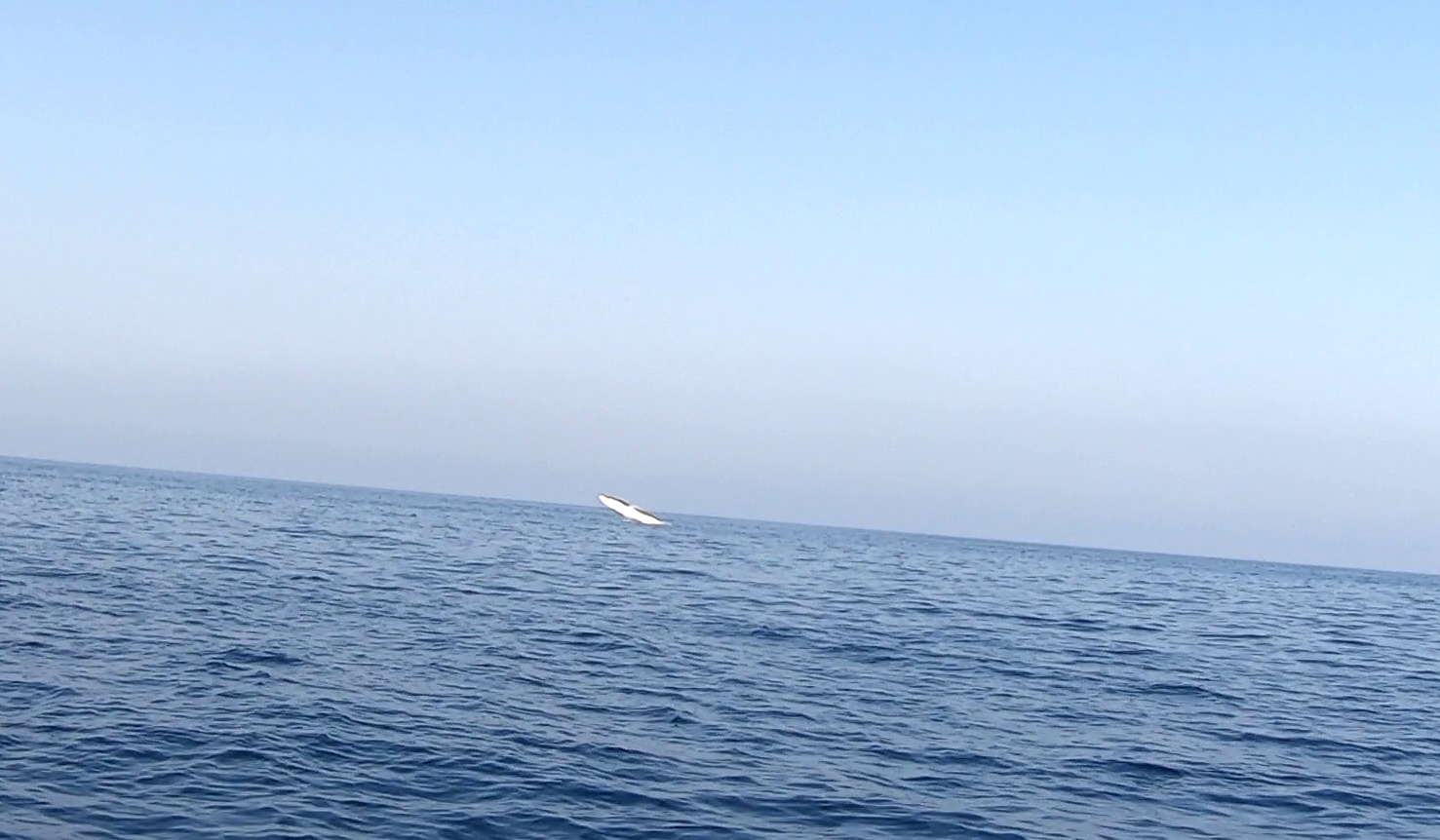
Megattera – Humpback whale – Megaptera novaeangliae – intotheblue.it
The Humpback whale (Megaptera novaeangliae) live in oceans and seas around the world, humpback whales typically migrate up to 25,000 km each year. They feed in polar waters, and migrate to tropical or subtropical waters to breed and give birth,fasting and living off their fat reserves. Their diet consists mostly of krill and small fish. Humpbacks have a diverse repertoire of feeding methods, including the bubble net technique. megattere a castiglioncello intotheblue.it
This is an extraordinary sighting because the Humpback whales like the Killer whales are not whales that make their migrations towards the Mediterranean Sea; even if there have been sightings made in previous years both in the Ligurian Sea or rather in the famous “Pelagos Sanctuary for Mediterranean Marine Mammals” (which includes the Tuscan Archipelago, Corsica and the north-eastern coast of France), and in the Sicilian Channel.

Megattera – Humpback whale – Megaptera novaeangliae – intotheblue.it
There are many considerations and questions that it is natural to ask, including:
- migrations of alien species to the Mediterranean are due to climate change?!
- the humpback whale like the fin whale or the sperm whale has always entered the Mediterranean but there have been no reports except in recent years?!
- are their eating habits and their diet compatible with the characteristics and biology present in this sea?!
- have entered the “Triangle of Cetaceans” for the rites related to reproduction?!
- did they simply take the wrong route during the migration and entering the Strait of Gibraltar found themselves in a closed sea and therefore with difficulty in getting out again?
- and so on.
We cannot find answers to all this and we seize the opportunityto invite the marine mammal experts to keep in mind our report which is in addition to the others, but above all to give answers to all those who ask themselves the same questions as us.
 English
English Italiano
Italiano
